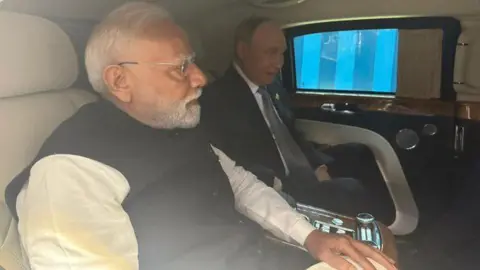Thousands of voters in Taiwan are participating in a significant and contentious recall vote aimed at removing lawmakers perceived as overly sympathetic to China. This "Great Recall" initiative, driven by civic groups, targets over 30 members of the Kuomintang (KMT) party, reflecting escalating tensions amid a political deadlock between Taiwan's Democratic Progressive Party (DPP) administration and the KMT-led Legislative Yuan.
The origin of this vote traces back to Taiwan's January 2024 elections, where the DPP's William Lai was elected president but the KMT retained a considerable foothold in the legislature. The aftermath saw the KMT collaborating with the Taiwan People's Party and independent lawmakers to counteract DPP bills, raising accusations that they are sabotaging the DPP's governance while also furthering their own agenda.
The protests ignited by what became known as the Bluebird movement in May 2024, arose as citizens rallied against the perception that the KMT is too closely aligned with Beijing. Accusations intensified following a visit by a KMT delegation to China, which spurred fears that they might be promoting Chinese interests in Taiwan’s legislature.
Civic organizers responded with petitions to recall KMT lawmakers, which were met with counter-petitions from KMT supporters targeting DPP representatives. Currently, 31 petitions have gained sufficient traction for a recall, all aimed at KMT members. Successful removals could flip control in the Legislative Yuan, potentially allowing the DPP to gain a legislative majority.
This Saturday, elections will take place across 24 districts, where constituents will vote on whether to remove their legislators in a straightforward yes or no format. If at least 25% of registered voters participate, and a majority vote in favor of the recall, the lawmaker will be dismissed, prompting a by-election in three months.
Turnout is considered pivotal for the recall's success, prompting intensified campaigning from civic groups, as well as counter-efforts from KMT rallies urging a "no" vote. Initially distancing itself from the movement, the DPP has shifted to support it, with Lai urging his party to engage with citizens' desires for change.
Beijing has also reacted to these developments, with its Taiwan Affairs Office condemning Lai's actions as undemocratic, accusing him of attempting to suppress dissent while under the guise of democracy. This ongoing saga illustrates Taiwan’s complex political dynamics and the polarized views regarding its relationship with China.





















